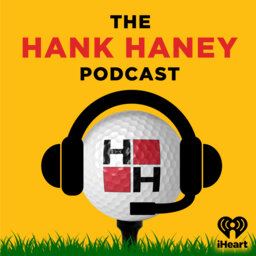Hank Haney reacts to the potential changes that could be coming on the PGA TOUR and brings up Lucas Glover's latest comments about the possibility of the overhaul.
The Hank Haney Podcast
Hank Haney gives his direct and powerful opinion on the biggest topics in the game of golf. It’s tim…Social links
Recent clips

#933: PGA TOUR Dumpster Fire
25:46

#932: Why AIMING is OVERRATED!
26:13

#931: Why TGL Will Change Golf
22:55
 The Hank Haney Podcast
The Hank Haney Podcast